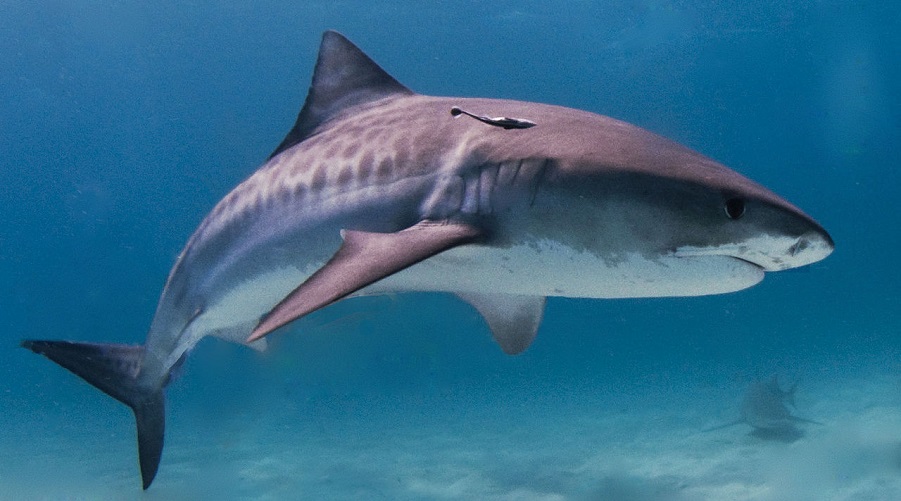
Tiger shark. Photo by Albert kok, Wikimedia Commons.
“Killing sharks is ocean vandalism,” Jessica Meeuwig, head of the Marine Futures Lab at the University of Western Australia and a close collaborator of the Sea Around Us and the Sea Around Us – Indian Ocean, told journalists following reports of a 395-kilogram tiger shark having been caught by a recreational fishing crew during a competition off the coast of Sydney.
The event took place earlier this year. According to Australian media, it took 45 minutes for six crew members to bring the animal on board the recreational vessel ‘Dark Horse’ using a 15-kilogram break line. Once ashore, the tiger shark was weighed and given to scientists for marine research.
But, for Meeuwig, the final destination doesn’t make the act of catching this animal any better.
The researcher said that sharks have been around for 400 million years and in just half a century, humanity has found effective ways to decimate their populations.
Meeuwig said that the shark caught near Sydney was probably 25 to 30 years old, which means that it was a big breeder.
“They are important because sharks grow very slowly, they don’t reproduce quickly, so if you get through to this size and age, and you are a big, old, fat female, you are actually the reproductive engine room for the population,” the scientist told The West Australian’s West Live podcast. “When you think about the rest of the ecosystem, what sharks do is that they maintain balance in the same way that wolves do on land, so we need these big predators in our oceans to keep our coral reefs and other marine ecosystems healthy.”
Meeuwig, who also heads Blue Abacus, an organization that collects and analyses remote video samples that capture fish population data, pointed out that there is plenty of good science that backs the argument of leaving sharks in the ocean.
“The fact that we are not doing that in Australia is a major failure of leadership from our governments, and I will comment, for instance, that in Western Australia it is illegal to take a shark-like that but we’ve failed to put those protections in the north and these are the places where whaler sharks all thrive but there’s no protection for them out there so, what are we doing?”, she told West Live.
The researcher said both authorities and the public need to re-think how we – as humans – interact with the ocean.
“We know that healthy oceans require healthy shark populations, so these activities are undermining conservation outcomes.”


